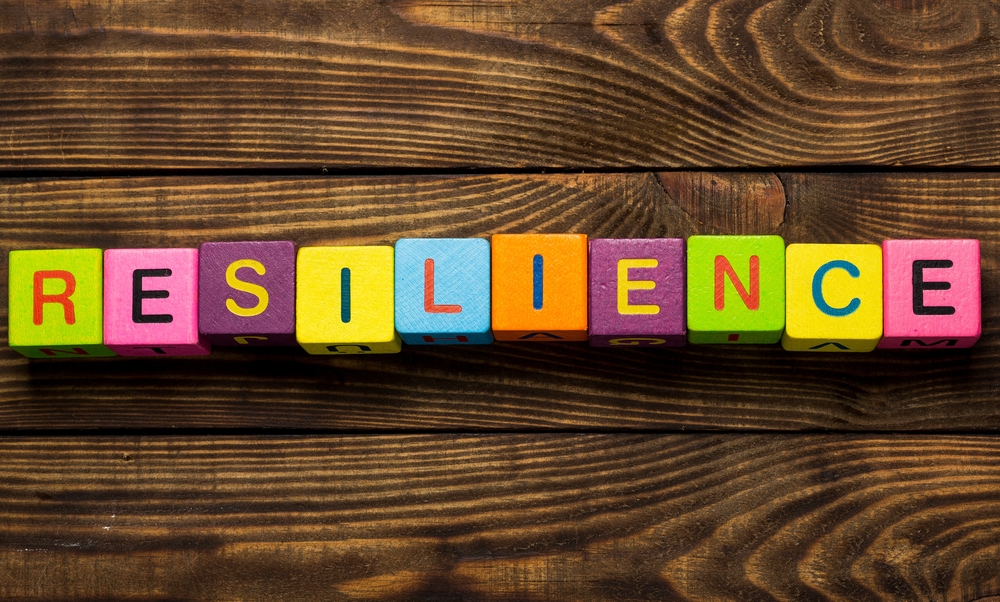Developing Grit and Resilience – 5 Strategies to Help Your Child!
We are all born with different levels of grit and resilience, but by placing ourselves in challenging situations, we can grow and develop our grit and resilience.
If you’ve ever tried to put on a bit of muscle at some stage in your life, you might be aware of the interesting physiology of muscle growth. For a muscle to grow and become stronger, it needs to be slightly injured first. When we lift weights, we actually create very small tears in our muscles. As the body goes about repairing these tears, the size and the number of muscle cells increases, eventually making us bigger and stronger.
Grit and resilience can be thought of in a similar way. They are like mental muscles that help us overcome adversity.

So, what are ‘grit’ and ‘resilience’? And why are they important?
Leading American psychologist Angela Duckworth defines grit as “the perseverance and passion for long-term goals”. Essentially, it is the ability to commit to a long-term goal, and recognise that getting there is a marathon – not a sprint – involving various peaks and troughs along the way.
Resilience goes hand in hand with grit. It is “the optimism to keep bouncing back from failure”, the ability to pick yourself up, dust yourself off and keep going.
So, to borrow Kori Miller’s analogy, we can think about grit as the engine propelling us to where we want to go, and resilience as the oil that keeps the engine humming along.
When it comes to achieving success of all kinds, grit and resilience are incredibly important. In fact, research suggests that grit might actually be the most important factor for achieving success – a better predictor of success than a person’s IQ or demographic background.
How can I teach my child to build grit and resilience?
Just like anything, grit and resilience can be developed and strengthened with practice and effort. Here are some things you could try with your child:
1. Promote a ‘Growth Mindset’.
A growth mindset (as opposed to a fixed mindset) is the belief that your basic qualities can be developed and improved through effort. If your child laments the fact that they “just can’t” do something, encourage them to reframe their approach to the task. “You might not be able to just yet, but keep trying and eventually you will get the hang of it.” Remember too that learning something new is bound to be difficult in some way – that is normal!
2. Promote Perspective.
Being gritty is all about playing the long game, and crucial to the long game is being able to keep things in perspective. Discuss mistakes and perceived failures with your child, but remind them that these are only temporary. What’s one test or one assignment in the grand scheme of things? Point out that mistakes are always an opportunity to learn and grow too.
3. Focus on the ‘Why’.
When it comes to something like homework or an assignment, chat with your child not about the ‘what’, but the ‘why’. “Why is this information important?” “Why do we learn Maths?” “Why is your teacher getting you to write an essay?” Focusing on the ‘why’ encourages your child to think about the longer-term aspects of different tasks, which will help reinforce their sense of perspective too. Asking ‘why’ also encourages curiosity, which may promote passion – a critical feature of grit.
4. Set challenging goals.
Setting goals is great, but if they’re too easy, they won’t do much to help your child build some grit. It’s better to set goals that are challenging, perhaps just out of reach. That way, your child is forced to step outside of their comfort zone and push the limits of their potential. Remember, grit is all about becoming comfortable with the uncomfortable!
5. Practice, practice, practice!
Resilience and grit are the cousins of effort, and your child simply will not strengthen these qualities unless they put in the hard yards. Of course, you need to ensure your child has a balanced and happy life outside of school, but if they can utilise a spare hour here and there during quieter times of the year to practice, they’ll be far better off in the long run.
